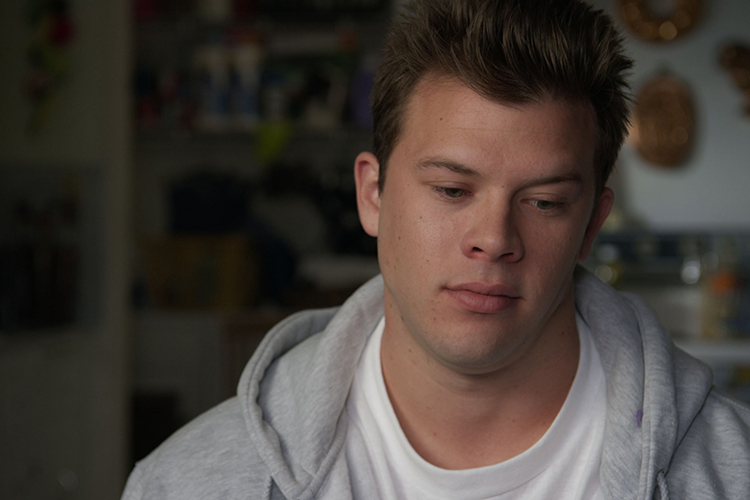True-crime parody 'American Vandal' provides powerful correlations to actual criminal cases

“American Vandal” suspect Dylan Maxwell. Netflix.
I had my reservations about Netflix’s original true-crime-documentary parody series American Vandal from the beginning. Did I laugh out loud the first time I watched the promo? Sure. But I thought it had to be nothing more than a one-off skit for some internet comedy provider such as Funny or Die and the like.
However, some of my colleagues brought it up around the water cooler; they were pretty insistent that I watch. One lazy weekend, my wife and I decided to give it a try. I completed the series before Monday morning.
If you find yourself offended by lowbrow comedy and a little bit of toilet humor, American Vandal probably isn’t for you. However, if you can see yourself entertained by one student’s search to discover who vandalized a school parking lot by drawing … phalluses … on every vehicle—and his subsequent quest to investigate the true culprit in hopes of clearing the name of a fellow student—then you’ll likely enjoy this true-crime satire.
At the end of the day, the series is a parody of other Netflix properties like Making a Murderer. It’s supposed to be comical, and it achieves that goal with the right audience. After all, the series currently has a 96 percent approval rating from critics on Rotten Tomatoes.
Still, when left to its own devices, many might think the show is nothing more than an attempt to capitalize on the true-crime phenomenon with some slightly sophomoric humor. Viewing the show as a criminal defense attorney, though, I saw quite a few parallels to actual issues that my clients and I face every day while defending against criminal complaints.

Netflix
Propensity evidence is dangerous
Dylan Maxwell is your quintessential Jeff Spicoli (a la Fast Times at Ridgemont High) ripoff. He is in his last year of high school in California, he doesn’t care about class aside from trying to get a cheap laugh, and he very much enjoys skipping said class to smoke a bit of marijuana with his friends. He gets accused as the prime suspect, and eventual perpetrator, of the vehicular vandalism in large part based on his propensity to draw male genitalia pretty much everywhere.
This propensity evidence seems to give most students their first indication that Dylan is the vandal. As the story shows through various montages, he certainly has the ability and the desire to pull off the prank. But how does this correlate to actual criminal defense?
I handle lots of sex-crimes cases. It’s one of the largest areas of my criminal defense practice. More so than any other crime, sex-related cases run the risk of being prejudiced by propensity evidence in my experience. Even though the Federal Rules of Evidence generally outlaw propensity evidence, it is allowed in certain situations, such as when the prosecution offers evidence of similar crimes in sexual-assault cases.
In most states, criminal defense attorneys must constantly combat a statute that allows for proof of other sexual offenses along with case law that gives judges discretion in allowing evidence of “other bad acts” and instances of conduct that weren’t even charged criminally. The situation often creates quite the uphill climb.
Just as Dylan is prejudiced against by his own propensities, so are many criminal defendants. As a litigator, it is extremely difficult to overcome the stigma this type of evidence leaves with a jury. Once the bell has been rung, it is extremely difficult to reorient the jury to focus on the charges at hand. Too many times I’ve seen verdicts hang on the old adage that “where there’s smoke, there must be fire.”
Don’t get me wrong, I can see the interest in admitting evidence of some past occurrence that is so similar to the current allegation as to show modus operandi, but anything less should be kept out.

“American Vandal” witness Alex Trimboli. Netflix
Eyewitnesses are often wrong
One of the other most damming pieces of evidence against Dylan is the eyewitness statement of Alex Trimboli. Alex is the type of guy who’s willing to step in the spotlight if need be—and usually due to his own deceptions.
I’ve expressed my displeasure with eyewitness identification before.
According to the Innocence Project: “Eyewitness misidentification is the greatest contributing factor to wrongful convictions, playing a role in more than 70 percent of convictions overturned through DNA testing nationwide.” The Innocence Project reports that since 1989, the group has obtained exoneration of 351 people through post-conviction DNA testing. That means 249 of those defendants were sent to prison largely because of eyewitness misidentification.
I hate to reuse statistics, but numbers don’t lie. Honestly, I don’t think eyewitnesses usually lie, either (at least with purposeful intent), but I know they get confused, mistaken, and sometimes pressured into confirming something they might not believe wholeheartedly. The largest problem with eyewitness testimony, though, is the false sense of assurance it gives when there are usually multiple factors at play that could potentially contort a witness’s perspective or recollection.
In American Vandal, Alex Trimboli testifies at the board hearing against Dylan that he was positive he saw him in the parking lot vandalizing the vehicles. Consequently, it became imperative for the students investigating the allegations to decide whether Trimboli could actually be trusted. This is extremely common in actual criminal cases and jury trials as well. When you have a witness who hurts your case—because he or she says they saw your client commit the crime—goal No. 1 becomes harming the witness’s credibility by casting doubt on other aspects of his or her character, vantage point, and previous statements.
Innocent people do actually get charged
American Vandal ultimately exceeds in flaunting the faults often associated with the true-crime genre. If you embrace the series for the satire that it is, you’ll find an enjoyable examination on our current culture’s infatuation with true crime. Moreover, anyone who has found themselves in the trenches of a criminal case—and those who have been there before—will notice plenty of parallels to the reality the series scrutinizes.

Adam Banner
Adam R. Banner is the founder and lead attorney at the Oklahoma Legal Group, a criminal defense law firm in Oklahoma City. Mr. Banner’s practice focuses solely on state and federal criminal defense. He represents the accused against allegations of sex crimes, violent crimes, drug crimes, and white collar crimes.
The study of law isn’t for everyone, yet its practice and procedure seems to permeate pop culture at an increasing rate. This column is about the intersection of law and pop culture in an attempt to separate the real from the ridiculous.



